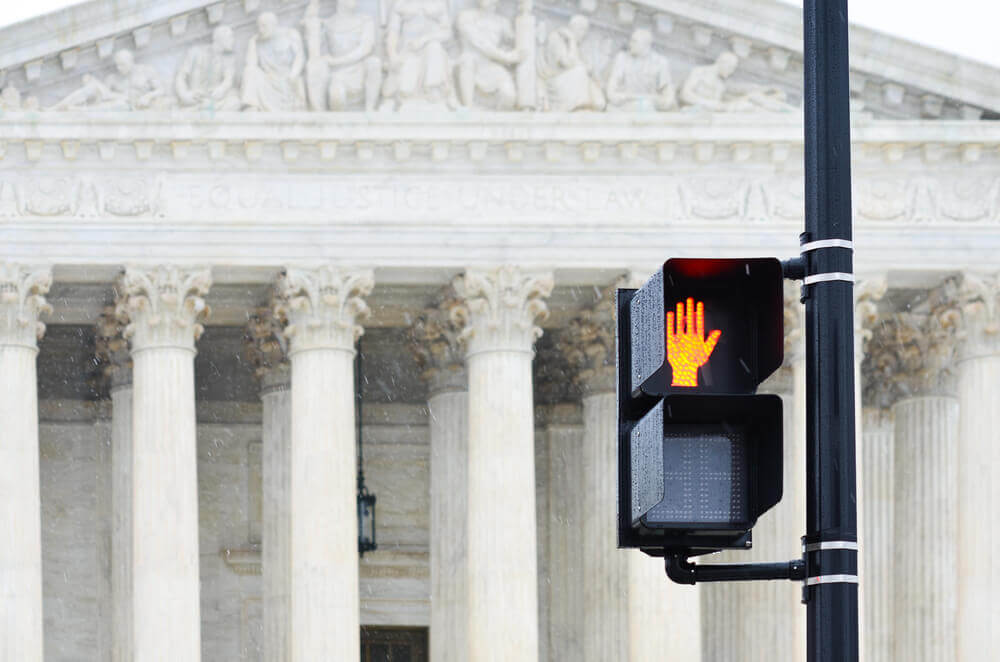The Supreme Court won’t hear Johnson & Johnson’s Risperdal appeal anytime soon. As the highest court in the land, the Supreme Court receives approximately 10,000 appeals petitions each year. Of these, they oversee just 80 appeals annually. Recently in January 2016, they denied an appeal from Janssen Pharmaceuticals (a subsidiary of Johnson & Johnson). The company contested a $124 million penalty imposed by South Carolina over deceptive marketing of their antipsychotic drug, Risperdal.
Risperdal Appeal Denied: How the Case Played Out
Back in 2007, South Carolina accused Janssen of engaging in unfair and deceptive marketing acts. In addition to other allegations, the state accused Janssen of hiding Risperdal’s side effect risks. (Janssen allegedly sent sample packs to doctors, along with literature touting Risperdal’s safety over other antipsychotic medications.) Later in June 2011, a jury ruled Janssen owed $327 million in civil penalties for 553,055 violations of the South Carolina Unfair Trade Practices Act (SCUPTA). While this fine was eventually reduced to $136 million, Janssen appealed at the Supreme Court level.
Janssen’s Argument
Janssen’s attorneys asserted the award violated the Constitution’s eighth amendment, which notably prohibits “excessive fines.” Lawyers also appealed due to no evidence of “actual injury or harm.” The company’s petition said, “Indeed, the South Carolina Supreme Court readily acknowledged that Janssen’s conduct ‘likely had little impact on the community of prescribing physicians’ because the risks associated with atypical antipsychotics were ‘well known.’”
Shortly after the Supreme Court rejected their Risperdal appeal, a Janssen spokeswoman expressed disappointment. “Risperdal is a safe and effective medicine that has helped and is still helping millions of patients with debilitating mental illnesses and neurodevelopmental conditions as part of a comprehensive treatment plan,” stated Janssen’s spokeswoman.
The State Court’s Argument
South Carolina’s state court countered Janssen’s argument, asserting that SCUPTA was guided by federal unfair trade policies. Moreover, the South Carolina jury was well-educated on what constitutes unfairness and deception, according to FTC policy.
They based their argument on the following two claims:
- Janssen failed to properly warn against the drug’s dangers, according to written Risperdal prescriptions since 1994.
- Janssen sent a letter to doctors in 2003 claiming Risperdal didn’t significantly increase the risk of diabetes. They also admitted to “misleading doctors and other healthcare providers about the safety of its product, minimizing potentially deadly side effects.”
Afterwards, a state court spokesman told Law360, “We are pleased the U.S. Supreme Court refused to second-guess the South Carolina Supreme Court’s fair and reasonable penalty against Janssen Pharmaceuticals… This is a landmark case. The state Supreme Court established important guidelines for the future by imposing a penalty of well over $100 million under the Unfair Trade Practices Act.”
Other States Awarded Millions in Risperdal Settlements
While the Supreme Court’s denial is a landmark case for South Carolina, Janssen paid heavily for false advertising within other states. In November 2013, they settled for $181 million shared by 36 states to resolve improper marketing as well as advertising claims. This was the largest multi-state consumer protection-based pharmaceutical settlement to date.
The settlement included the District of Columbia as well as the following states:
- Alabama
- Arizona
- Colorado
- Connecticut
- Delaware
- Florida
- Hawaii
- Idaho
- Illinois
- Indiana
- Iowa
- Kansas
- Maine
- Maryland
- Michigan
- Minnesota
- Missouri
- Nebraska
- Nevada
- New Hampshire
- New Jersey
- New York
- North Carolina
- North Dakota
- Ohio
- Oklahoma
- Oregon
- Pennsylvania
- Rhode Island
- South Dakota
- Tennessee
- Texas
- Vermont
- Washington
- Wisconsin
- Wyoming
Because South Carolina isn’t included in the settlement, they filed an individual $136 million claim. However, other states also won substantial Risperdal settlements. A Texas case settled for $158 million, and an Arkansas judge hit Janssen with an additional $1.2 billion in fines.
What Janssen Must Do Now
After all this, Janssen agreed to make changes over a five-year period. The agreement ensures financial incentives won’t encourage off-label marketing. Additionally, sales and marketing employees can’t write medical label copy. Information about drug effectiveness as well as risks must include balanced, clear information for patients and doctors alike. As a result, this agreement “sends a message to all pharmaceutical companies that these practices will not be tolerated,” said Florida Attorney General Pam Bondi.
Of course, Bondi isn’t the only attorney who’s angry about Risperdal.
“As a group, these (multi-state award settlements) have kind of sent a message to the pharmaceutical industry that this kind of widespread fraud and disregard for FDA regulations isn’t going to be tolerated,” said lawyer David Stone. (Stone’s team previously sued Janssen for illegal marketing practices.) Yet Stone says incentives to continue illegal marketing practices remain. Importantly, “the more they can expand market share, the more money they make,” said Stone.
And unfortunately, he’s right.
The fines likely sound exorbitant (they are currently approaching $3 billion for Risperdal alone). However, they pale in comparison to the billions earned in drug sales from illegally promoting Risperdal. With before-tax profits of $20.6 billion just in 2014, putting aside $181 million or even $1 billion barely dents the company’s staggering financials.
What the Risperdal-Supreme Court Decision Means
If either you or a loved one suffered Risperdal’s harmful side effects and misleading claims, you may qualify for compensation. Since Janssen settled for millions and had their Risperdal appeal denied, they’re guilty of falsely promoting the drug. Learn more about the Risperdal lawsuit. Then, get your free Risperdal case evaluation today to see if you may qualify for financial compensation.
